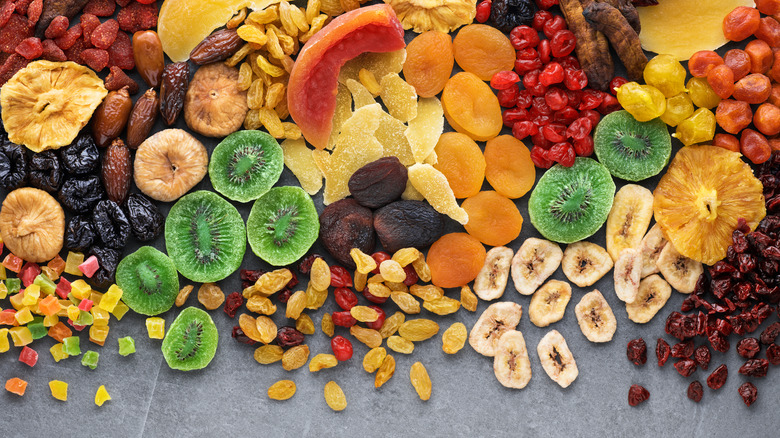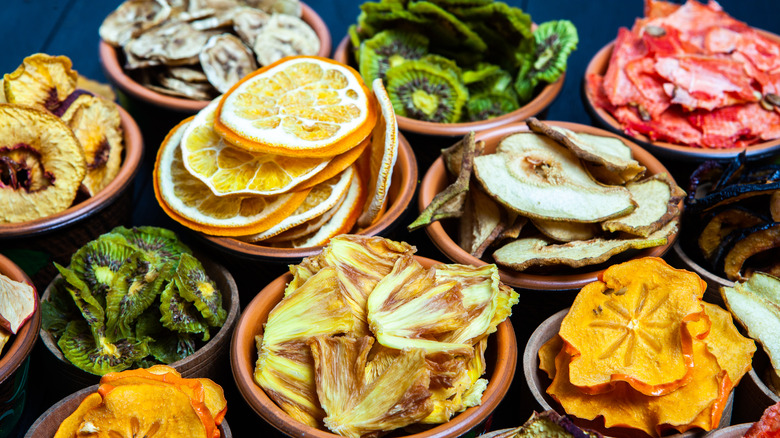Why You May Want To Avoid Dried Fruit
From healthy and nutritious trail mixes and granolas to hearty stuffings and salads to boozed up mincemeat pies and Swedish mulled wines, dried fruit is a versatile addition to a number of food and drink items, used to impart extra sweetness or texture, or both. They're also delicious when enjoyed on their own, something humans have been doing for centuries. Dried fruit is also highly nutritious. As reported by Healthline, dried fruit is a great source of fiber, micronutrients, and antioxidants, and in particular polyphenols, and certain dried fruits may help prevent or fight certain diseases, including heart disease, cancer, and osteoporosis.
On the downside, dried fruits are proportionally high in calories, carbs, and sugars, and should be consumed in moderation, advises WedMD. Healthline further warns that some dried fruits may also contain sulfites, which can cause skin rashes, asthma attacks, and stomach cramps in those with sulfite sensitivities. Moreover, improper storage and handling of dried fruit can lead to contamination with fungi, toxins, and, it turns out, other pathogens like the bacteria that causes salmonella (via Eat This, Not That!), which may make you think twice about consuming dried fruit at all.
Dried fruit has been linked to food-borne illnesses
Although low moisture foods like dried fruit don't typically support the growth of bacteria like salmonella, poor sanitation practices and monitoring can lead to contamination by salmonella and other pathogens, which can then survive in the low moisture environment for a long period of time, warns a study published in The Journal of Food Protection. A salmonella outbreak in Norway in 2018 and 2019, which led to dozens of illnesses and hospitalizations, was traced to dried fruit from various countries. A potential salmonella contamination also led to a recall of certain dried fruit sold through Costco in 2020.
In light of these concerns, scientists have been working on finding a solution, including potential new methods of decontamination. One study in particular (via the International Journal of Food Microbiology), which looked at both an ethanol sanitizer method and a oxidation method involving UV light, ozone, and hydrogen peroxide, showed some promise. However, more studies need to be done before safe and widespread application. Until then, it may be safest to avoid dried fruit altogether for a while.

